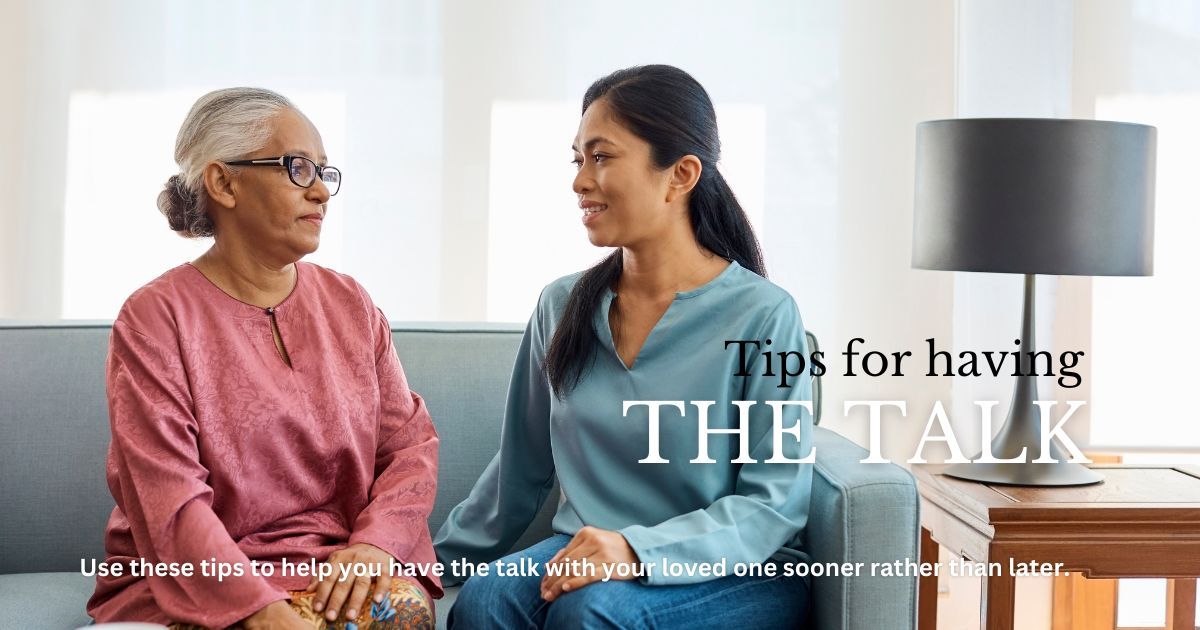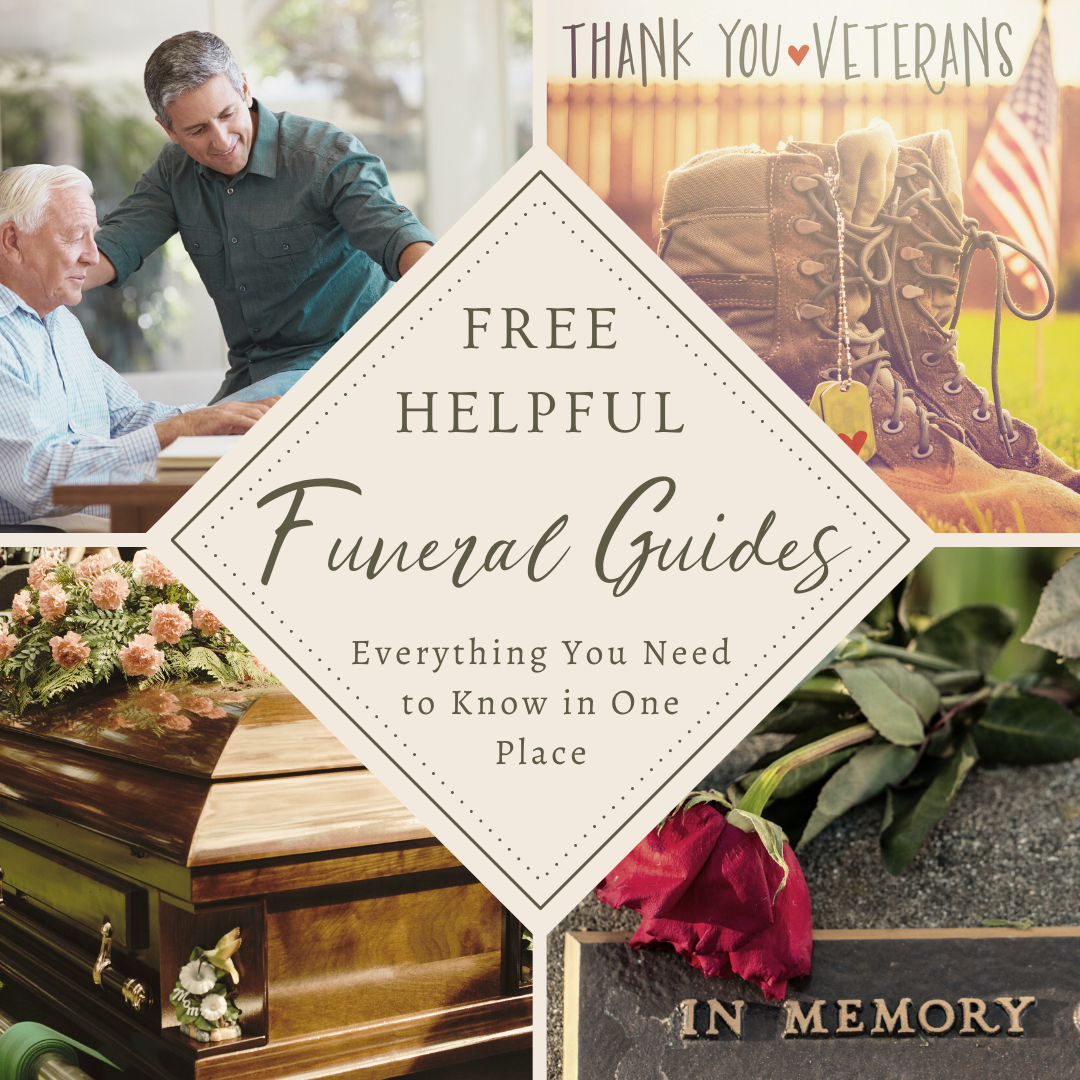Having end-of-life conversations provides peace of mind for everyone. It is also an invaluable way to express your love and respect. Use these tips to help you have the talk with your loved one sooner rather than later.

The setting matters. Don’t casually strike up this conversation at a noisy restaurant, or in the middle of an otherwise pleasant family get-together. Select a time and a place where people are comfortable and not distracted. A private setting is usually ideal.
Don’t stress. With that said, you can let the conversation come naturally. You don’t have to wring your hands for days or weeks thinking about the big moment; if you find yourself in a place where it feels natural or organic to talk about end-of-life issues—or if mom or dad brings it up—then go for it.
Ask for permission. The end-of-life discussion is all about respect—so make sure you exhibit respect from the get-go. Ask permission to have the conversation. Explain that it is important to you to know what your parents’ wishes are, and ask if you can talk about it now.
Remember your intentions. You started this conversation out of love for your parent(s). Try to remember that throughout the conversation; remain warm and respectful, never impatient. It may be hard for mom and dad to discuss these things, so let them go at their own pace. Nod your agreement or hold hands if you feel it would make the process easier.
Ask the right questions. Come to the conversation knowing what questions you need to ask. We have prepared a cheat sheet for you, available at the end of this document.
Listen well. Don’t start an argument or a debate, and don’t act indifferent about the conversation. Make it clear that what matters to your loved one matters to you. Listen for wants and needs and verbally acknowledge that you understand and affirm the choices your loved one has made—even if you do not happen to agree with them.
Get to know your loved one. A lot of end-of-life decisions come down to the personality of the individual in question—likes, dislikes, beliefs, values. You may think you know the person quite well, but use this conversation as a chance to know them better. Ask open-ended questions.
Don’t be pushy. As you and your loved one talk about their values and their life story, an issue or question may arise that the person does not wish to talk about. Be respectful of that and willing to just move on.
Ask about legacy. Sometimes the best questions are the simplest: In order to remember your loved one well, try asking how they wish to be remembered.
Take notes. If you feel like you won’t be able to remember important details, don’t be hesitant to jot down a few notes.
Having a meaningful end-of-life discussion all comes down to asking the right questions. Here are some important questions that you can use to guide your conversation:
Do you have a will that outlines any funeral/memorial wishes? Do you have a pre-paid funeral plan?
- What do you want your funeral to mean?
- What parts of your life are you proudest of? What has been most important to you?
- What do you believe happens after death?
- What are some of your earliest memories? Some of your fondest memories?
- How do you hope people will remember you? What do you hope will be your legacy?
- Do you want the service to be religious in nature? If so, describe the religious or spiritual components that you wish to have in place.
- Is your wish to be buried or cremated?
- Would you like there to be an open-casket viewing?
- Where would you like the memorial service to be?
- Describe your ideal service. What are your wishes in terms of music? Food or refreshment? Do you prefer an occasion that is formal? Somber? Celebratory?
- Are there specific items or heirlooms you would like to have incorporated into the memorial service?
Having end-of-life conversations provides peace of mind for everyone. It is also an invaluable way to express your love and respect. Use these tips to help you have the talk with your loved one sooner rather than later.

